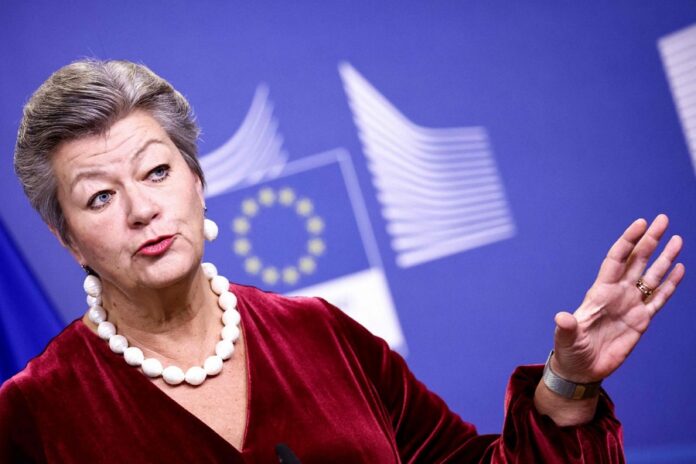The European Commission on Tuesday presented its new plan to step up the return of migrants to countries outside of the European Union, as the 27 member states brace for a fight over this politically explosive topic at a series of key meetings in the weeks to come, according to Politico.
EU country migration services requested 342,100 people be removed in 2021, the most recent year with full data available. Only 24% of them were returned to a country outside of the bloc in 2021, according to Eurostat.
The number of returns “needs to be increased,” European Commissioner for Home Affairs Ylva Johansson said at a press conference in Brussels on Tuesday.
“Member states can’t solve it alone, but the Commission can’t solve it alone either,” Johansson added.
Administrative problems and bottlenecks in member states that complicate finalizing returns are among the many reasons this percentage is so low, officials say. It is also more convenient for third countries to agree on returns only as part of a more comprehensive package of economic measures. But, for example, agencies working on development aid often do not coordinate with those that work on returns.
One of the goals of the Commission’s proposal is “to ensure that Member States join forces and that there is seamless coordination and coherence among all actors, to ensure that collective efforts focus on the return to identified third countries in line with political priorities.”
The Commission’s plan comes ahead of an informal meeting of interior ministers in Stockholm on Thursday.
This meeting is expected to address measures that would ensure each EU member regularly provide Frontex, the EU border agency, with relevant data on returns by the end of each year, with the objective of establishing a digitalized process in all member states “as soon as possible, and by 2026 at the latest.”
It also aims to double the number of third countries covered by Frontex’s reintegration assistance program, which provides financial assistance and counseling to migrants upon return in their home country, by the end of 2023.
Some 26 countries — including Brazil, India, Pakistan, Algeria and Morocco — are currently part of the program.
The move comes as pressure on the EU’s borders reaches its greatest level since 2016: In 2022, around 330,000 irregular crossings were recorded at the bloc’s borders, according to the latest figures from Frontex.
Migration is also one the key issues on the agenda of the next European Council, which will take place in Brussels in early February.


